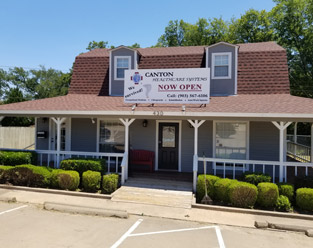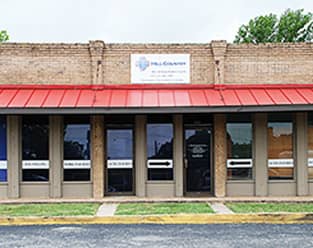
Trauma is an unfortunate and often-unavoidable aspect of life for many people throughout the world. As our mental dispositions vary greatly throughout life and from person to person, there is no saying who or what could trigger a traumatic event that impacts our mental health for the rest of our lives. From the loss of a loved to one to seeing or experiencing significant physical or mental harm, many common and rare events can lead to a PTSD diagnosis.
The key takeaway is that PTSD is a clinically recognized mental condition that affects millions of Americans each year. If you have begun to notice changes in your behavior, psychological state, mood or sleep after a traumatic event, allow the team at Advantage Healthcare Systems in Dallas to provide a comprehensive evaluation that will validate your symptoms and provide a clinical diagnosis. Call our office at (877) 487-8289 to schedule your consultation with one our patient and caring psychiatrists today.
Combating Skepticism
Mental health disorders carry a degree of skepticism as they are not conditions that display visible symptoms. America is still developing its acceptance of mental health disorders such as PTSD. This leads to mental health treatment seekers experiencing shame for simply wanting to improve their overall health and wellbeing. Those suffering from mental distress may be the biggest source of shame as they can project their own insecurities that society has given them.
For PTSD sufferers, having to validate your physical and emotional state can be frustrating, stressful, embarrassing and even triggering. It’s important to remember that 1) you are not alone and 2) skepticism does not invalidate your clinical diagnosis or symptoms.
Despite what others say, you do not have to apologize for or validate your PTSD symptoms. Limit your exposure to negativity and ignorance but take the time to patiently educate those that truly care but simply have a hard time understanding your condition.
You Are Not Alone
Around 7.7 million Americans suffer from PTSD. Even those that are not officially diagnosed with PTSD may still be able to relate to your traumatic experience as somewhere between 55-70% of the population will have experienced a traumatic event within their lifetimes (source).
In addition to meeting with a therapist or psychiatrist to work through your individual experience with trauma and PTSD symptoms, there are also groups and online resources dedicated to sharing PTSD experiences and solutions for coping with your symptoms. Going through trauma can feel isolating, surrounding yourself with other PTSD patients will help you recognize that others share similar experiences and/or symptoms. Your group will not only be a source of comfort and relatability, but also a source of motivation and accountability in the times when you or others need it most.
Being Open About Your PTSD Without Letting It Define You
PTSD has historically made relationships, work and/or school more challenging. Part of this can be the public misconception surrounding PTSD and mental distress in general. The other part comes from the stigma surrounding mental illness that shames PTSD patients into hiding their condition.
Being open about your PTSD lets others know that you have accepted your condition and that they should as well, because it is nothing to be ashamed of. It also opens up a dialogue to educate others on the reality of PTSD symptoms, any triggers you may have and how often (or infrequently) to expect your symptoms to flare up.
It is still important to set boundaries and limitations on how PTSD is attributed to your persona. If you don’t feel comfortable addressing your PTSD at a given moment, it’s perfectly acceptable to let those around you know that you wish to talk about something else. Your PTSD, especially once it is being personally and/or professionally managed, will only account for a small fraction of who you are and what you have to offer as a friend, colleague or partner.
Manage your personal PTSD at your own pace and always remember that anytime, anywhere and in any circumstance, you will never regret reaching out for peer or professional help.






Leave a Reply